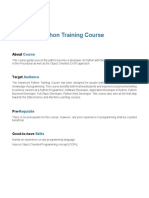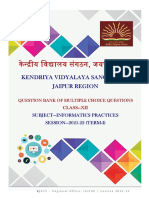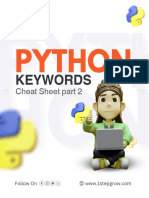0% found this document useful (0 votes)
5 views3 pagesPython Topics
This document outlines a structured Python learning plan spanning 16 weeks, divided into beginner, intermediate, advanced, and expert levels. Each week includes specific topics, daily activities, and weekend practice projects aimed at building skills in Python and Django. The plan culminates in a final project that integrates various concepts learned throughout the course.
Uploaded by
guptamahi2206Copyright
© © All Rights Reserved
We take content rights seriously. If you suspect this is your content, claim it here.
Available Formats
Download as DOCX, PDF, TXT or read online on Scribd
0% found this document useful (0 votes)
5 views3 pagesPython Topics
This document outlines a structured Python learning plan spanning 16 weeks, divided into beginner, intermediate, advanced, and expert levels. Each week includes specific topics, daily activities, and weekend practice projects aimed at building skills in Python and Django. The plan culminates in a final project that integrates various concepts learned throughout the course.
Uploaded by
guptamahi2206Copyright
© © All Rights Reserved
We take content rights seriously. If you suspect this is your content, claim it here.
Available Formats
Download as DOCX, PDF, TXT or read online on Scribd
/ 3





































































































